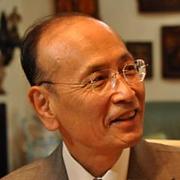【孫崎享のつぶやき】
カズオ・イシグロのノーベル文学賞授与式演説を読んで。彼は何故、底辺の人々の視点で小説を書けたか。作家活動の前、一年間はホームレスを扱う仕事。作家後も29歳、居間にはソファーもない。二つのマットレスがあるだけ。
2017-12-12 08:324
1:カズオ・イシグロ( 1954年生まれ)の代表作は、『私を離さないで』と『日の名残り』であろう。『日の名残り』は英国最高の文学賞ブッカー賞を受賞している。
2:『私を離さないで』と。『日の名残り』のあらすじを見てみたい。
(1)『日の名残り』
あらすじ[ウィキペディア]
物語は1956年の「現在」と1920年代から1930年代にかけての回想シーンを往復しつつ進められる。
第二次世界大戦が終わって数年が経った「現在」のことである。執事であるスティーブンスは、新しい主人ファラディ氏の勧めで、イギリス西岸のクリーヴトンへと小旅行に出かける。前の主人ダーリントン卿の死後、親族の誰も彼の屋敷ダーリントンホールを受け継ごうとしなかったが、それをアメリカ人の富豪ファラディ氏が買い取った。ダーリントンホールでは、深刻なスタッフ不足を抱えていた。なぜなら、ダーリントン卿亡き後、屋敷がファラディ氏に売り渡される際に熟練のスタッフたちが辞めていったためだった。人手不足に悩むスティーブンスのもとに、かつてダーリントンホールでともに働いていたベン夫人から手紙が届く。ベン夫人からの手紙には、現在の悩みとともに、昔を懐かしむ言葉が書かれていた。ベン夫人に職場復帰してもらうことができれば、人手不足が解決する。そう考えたスティーブンスは、彼女に会うために、ファラディ氏の勧めに従い、旅に出ることを思い立つ。しかしながら、彼には、もうひとつ解決せねばならぬ問題があった。彼のもうひとつの問題。それは、彼女がベン夫人ではなく、旧姓のケントンと呼ばれていた時代からのものだった。旅の道すがら、スティーブンスは、ダーリントン卿がまだ健在で、ミス・ケントンとともに屋敷を切り盛りしていた時代を思い出していた。
今は過去となってしまった時代、スティーブンスが心から敬愛する主人・ダーリントン卿は、ヨーロッパが再び第一次世界大戦のような惨禍を見ることがないように、戦後ヴェルサイユ条約の過酷な条件で経済的に混乱したドイツを救おうと、ドイツ政府とフランス政府・イギリス政府を宥和させるべく奔走していた。やがて、ダーリントンホールでは、秘密裡に国際的な会合が繰り返されるようになるが、次第にダーリントン卿は、ナチス・ドイツによる対イギリス工作に巻き込まれていく。
再び1956年。ベン夫人と再会を済ませたスティーブンスは、不遇のうちに世を去ったかつての主人や失われつつある伝統に思いを馳せ涙を流すが、やがて前向きに現在の主人に仕えるべく決意を新たにする。屋敷へ戻ったら手始めに、アメリカ人であるファラディ氏を笑わせるようなジョークを練習しよう、と。
(2)『私を離さないで』
あらすじ[ウィキペディア]
1990年代末のイギリス。「介護人」キャシーは、ヘールシャムと呼ばれる施設で育てられた「提供者」達の世話をしている。そもそも、キャシーも生まれながらにしてヘールシャムで育った提供者である。施設を出て、大人となったキャシーは、閉鎖的なヘールシャムでの子供時代を回想していく。
ヘールシャムでの教育は、至って奇妙なものであった。「保護官」と呼ばれる教員達により「展覧会」に出展するための絵画や詩などを作る創作活動や、毎週の健康診断などが実施されていた。キャシーが12・3歳の頃、彼女にはトミーという親友がいた。彼は周囲の能力の差についていけずに教室内で度々癇癪を起こす生徒だった。しかし、ある日を境にトミーは騒ぎを起こさなくなり、それがキャシーにとっては疑問であった。ある日キャシーは、トミーに騒ぎを起こさなくなった理由について問いただす。彼は「保護官」の一人であるルーシーの影響だと語る。トミー曰く、ルーシーには絵を描きたくなければ描かなくてよい、と言われたという。またルーシーはヘールシャムの方針に不満を抱いていることがトミーの口から明かされる。この話を聞いた頃からキャシーは、ルーシーの事を注視するようになった。
キャシーが15歳になったとき、ヘールシャムでの最後の1年の出来事であった。ある雨の日、ルーシーは生徒の「映画俳優になりたい」という一言を耳にし、突如生徒を集めヘールシャムの真実を語る。「提供者」達は臓器提供のために造られ、摘出手術が終われば死ぬだけのクローンで、ヘールシャムを出るとすぐに臓器提供が始まるから将来の夢など無意味だという真実を。
3:両書とも明確なのは、主人公たちが『日の名残り』では執事と女中、『私を離さないで』は臓器提供者という社会の底辺の人々である。その視点をカズオ・イシグロはどの時点で身に着けたのかというのが私の疑問点だった。
だが答えは簡単だった。彼はgrammar schoolを出て。English middle-class boysとして育つが、彼自身、底辺で生きてきたのだ。
4:1979年からの一年、イースト・アングリア大学のCreative Writing courseが彼の作家活動の基礎になった(Those months were crucial for me, in so far as without them I'd probably never have become a writer).が、その前、一年間はホームレスを扱う仕事についている。
かつ作家としても外国人というハンディを負っている。彼が作家活動に踏み切った時、英国には著名な外国人作家はいなかった。
1983年、イシグロは妻とロンドンで生活を始まるが住居は二室である。居間にはソファーもない。二つのマットレスがあるだけだ。
5:受賞スピーチでの日本とのかかわりの言及は極めて多い。
冒頭. I was then 24 years old. My features would have looked Japanese, but unlike most Japanese men seen in Britain in those days, I had hair down to my shoulders, and a drooping bandit-style moustache.. Had you mentioned Japan, asked me about its culture, you might even have detected a trace of impatience enter my manner as I declared my ignorance on the grounds that I hadn't set foot in that country – not even for a holiday – since leaving it at the age of five.
イースト・アングリア大学での最初の小説の題材が長崎A Pale View of Hills – set also in Nagasaki,
少年時代の思い出
I had come to England, aged five, with my parents and sister in April 1960, to the town of Guildford, Surrey, in the affluent 'stockbroker belt' thirty miles south of London. My father was a research scientist, an oceanographer who'd come to work for the British government. The machine he went on to invent, incidentally, is today part of the permanent collection at the Science Museum in London.
(4)両親の対応
But all this time, I was leading another life at home with my Japanese parents. At home there were different rules, different expectations, a different language. My parents' original intention had been that we return to Japan after a year, perhaps two. In fact, for our first eleven years in England, we were in a perpetual state of going back 'next year'. As a result, my parents' outlook remained that of visitors, not of immigrants. They'd often exchange observations about the curious customs of the natives without feeling any onus to adopt them.
And for a long time the assumption remained that I would return to live my adult life in Japan, and efforts were made to keep up the Japanese side of my education. Each month a parcel arrived from Japan, containing the previous month's comics, magazines and educational digests, all of which I devoured eagerly. These parcels stopped arriving some time in my teens – perhaps after my grandfather's death – but my parents' talk of old friends, relatives, episodes from their lives in Japan all kept up a steady supply of images and impressions. And then I always had my own store of memories – surprisingly vast and clear: of my grandparents, of favourite toys I'd left behind, the traditional Japanese house we'd lived in (which I can even today reconstruct in my mind room by room), my kindergarten, the local tram stop, the fierce dog that lived by the bridge, the chair in the barber's shop specially adapted for small boys with a car steering wheel fixed in front of the big mirror.
What this all amounted to was that as I was growing up, long before I'd ever thought to create fictional worlds in prose, I was busily constructing in my mind a richly detailed place called 'Japan' – a place to which I in some way belonged, and from which I drew a certain sense of my identity and my confidence. The fact that I'd never physically returned to Japan during that time only served to make my own vision of the country more vivid and personal.
Hence the need for preservation. For by the time I reached my mid-twenties – though I never clearly articulated this at the time – I was coming to realise certain key things. I was starting to accept that 'my' Japan perhaps didn't much correspond to any place I could go to on a plane; that the way of life of which my parents talked, that I remembered from my early childhood, had largely vanished during the 1960s and 1970s; that in any case, the Japan that existed in my head might always have been an emotional construct put together by a child out of memory, imagination and speculation. And perhaps most significantly, I'd come to realise that with each year I grew older, this Japan of mine – this precious place I'd grown up with – was getting fainter and fainter.
I'm now sure that it was this feeling, that 'my' Japan was unique and at the same time terribly fragile – something not open to verification from outside – that drove me on to work in that small room in Norfolk. What I was doing was getting down on paper that world's special colours, mores, etiquettes, its dignity, its shortcomings, everything I'd ever thought about the place, before they faded forever from my mind. It was my wish to re-build my Japan in fiction, to make it safe, so that I could thereafter point to a book and say: 'Yes, there's my Japan, inside there.'
6:イシグロの最後のメッセージ
I believe we must become more diverse. I mean this in two particular senses.
Firstly, we must widen our common literary world to include many more voices from beyond our comfort zones of the elite first world cultures. We must search more energetically to discover the gems from what remain today unknown literary cultures, whether the writers live in far away countries or within our own communities. Second: we must take great care not to set too narrowly or conservatively our definitions of what constitutes good literature. The next generation will come with all sorts of new, sometimes bewildering ways to tell important and wonderful stories. We must keep our minds open to them, especially regarding genre and form, so that we can nurture and celebrate the best of them. In a time of dangerously increasing division, we must listen. Good writing and good reading will break down barriers. We may even find a new idea, a great humane vision, around which to rally.
カズオ・イシグロのノーベル文学賞授与式演説を読んで。彼は何故、底辺の人々の視点で小説を書けたか。作家活動の前、一年間はホームレスを扱う仕事。作家後も29歳、居間にはソファーもない。二つのマットレスがあるだけ。
2017-12-12 08:324
1:カズオ・イシグロ( 1954年生まれ)の代表作は、『私を離さないで』と『日の名残り』であろう。『日の名残り』は英国最高の文学賞ブッカー賞を受賞している。
2:『私を離さないで』と。『日の名残り』のあらすじを見てみたい。
(1)『日の名残り』
あらすじ[ウィキペディア]
物語は1956年の「現在」と1920年代から1930年代にかけての回想シーンを往復しつつ進められる。
第二次世界大戦が終わって数年が経った「現在」のことである。執事であるスティーブンスは、新しい主人ファラディ氏の勧めで、イギリス西岸のクリーヴトンへと小旅行に出かける。前の主人ダーリントン卿の死後、親族の誰も彼の屋敷ダーリントンホールを受け継ごうとしなかったが、それをアメリカ人の富豪ファラディ氏が買い取った。ダーリントンホールでは、深刻なスタッフ不足を抱えていた。なぜなら、ダーリントン卿亡き後、屋敷がファラディ氏に売り渡される際に熟練のスタッフたちが辞めていったためだった。人手不足に悩むスティーブンスのもとに、かつてダーリントンホールでともに働いていたベン夫人から手紙が届く。ベン夫人からの手紙には、現在の悩みとともに、昔を懐かしむ言葉が書かれていた。ベン夫人に職場復帰してもらうことができれば、人手不足が解決する。そう考えたスティーブンスは、彼女に会うために、ファラディ氏の勧めに従い、旅に出ることを思い立つ。しかしながら、彼には、もうひとつ解決せねばならぬ問題があった。彼のもうひとつの問題。それは、彼女がベン夫人ではなく、旧姓のケントンと呼ばれていた時代からのものだった。旅の道すがら、スティーブンスは、ダーリントン卿がまだ健在で、ミス・ケントンとともに屋敷を切り盛りしていた時代を思い出していた。
今は過去となってしまった時代、スティーブンスが心から敬愛する主人・ダーリントン卿は、ヨーロッパが再び第一次世界大戦のような惨禍を見ることがないように、戦後ヴェルサイユ条約の過酷な条件で経済的に混乱したドイツを救おうと、ドイツ政府とフランス政府・イギリス政府を宥和させるべく奔走していた。やがて、ダーリントンホールでは、秘密裡に国際的な会合が繰り返されるようになるが、次第にダーリントン卿は、ナチス・ドイツによる対イギリス工作に巻き込まれていく。
再び1956年。ベン夫人と再会を済ませたスティーブンスは、不遇のうちに世を去ったかつての主人や失われつつある伝統に思いを馳せ涙を流すが、やがて前向きに現在の主人に仕えるべく決意を新たにする。屋敷へ戻ったら手始めに、アメリカ人であるファラディ氏を笑わせるようなジョークを練習しよう、と。
(2)『私を離さないで』
あらすじ[ウィキペディア]
1990年代末のイギリス。「介護人」キャシーは、ヘールシャムと呼ばれる施設で育てられた「提供者」達の世話をしている。そもそも、キャシーも生まれながらにしてヘールシャムで育った提供者である。施設を出て、大人となったキャシーは、閉鎖的なヘールシャムでの子供時代を回想していく。
ヘールシャムでの教育は、至って奇妙なものであった。「保護官」と呼ばれる教員達により「展覧会」に出展するための絵画や詩などを作る創作活動や、毎週の健康診断などが実施されていた。キャシーが12・3歳の頃、彼女にはトミーという親友がいた。彼は周囲の能力の差についていけずに教室内で度々癇癪を起こす生徒だった。しかし、ある日を境にトミーは騒ぎを起こさなくなり、それがキャシーにとっては疑問であった。ある日キャシーは、トミーに騒ぎを起こさなくなった理由について問いただす。彼は「保護官」の一人であるルーシーの影響だと語る。トミー曰く、ルーシーには絵を描きたくなければ描かなくてよい、と言われたという。またルーシーはヘールシャムの方針に不満を抱いていることがトミーの口から明かされる。この話を聞いた頃からキャシーは、ルーシーの事を注視するようになった。
キャシーが15歳になったとき、ヘールシャムでの最後の1年の出来事であった。ある雨の日、ルーシーは生徒の「映画俳優になりたい」という一言を耳にし、突如生徒を集めヘールシャムの真実を語る。「提供者」達は臓器提供のために造られ、摘出手術が終われば死ぬだけのクローンで、ヘールシャムを出るとすぐに臓器提供が始まるから将来の夢など無意味だという真実を。
3:両書とも明確なのは、主人公たちが『日の名残り』では執事と女中、『私を離さないで』は臓器提供者という社会の底辺の人々である。その視点をカズオ・イシグロはどの時点で身に着けたのかというのが私の疑問点だった。
だが答えは簡単だった。彼はgrammar schoolを出て。English middle-class boysとして育つが、彼自身、底辺で生きてきたのだ。
4:1979年からの一年、イースト・アングリア大学のCreative Writing courseが彼の作家活動の基礎になった(Those months were crucial for me, in so far as without them I'd probably never have become a writer).が、その前、一年間はホームレスを扱う仕事についている。
かつ作家としても外国人というハンディを負っている。彼が作家活動に踏み切った時、英国には著名な外国人作家はいなかった。
1983年、イシグロは妻とロンドンで生活を始まるが住居は二室である。居間にはソファーもない。二つのマットレスがあるだけだ。
5:受賞スピーチでの日本とのかかわりの言及は極めて多い。
冒頭. I was then 24 years old. My features would have looked Japanese, but unlike most Japanese men seen in Britain in those days, I had hair down to my shoulders, and a drooping bandit-style moustache.. Had you mentioned Japan, asked me about its culture, you might even have detected a trace of impatience enter my manner as I declared my ignorance on the grounds that I hadn't set foot in that country – not even for a holiday – since leaving it at the age of five.
イースト・アングリア大学での最初の小説の題材が長崎A Pale View of Hills – set also in Nagasaki,
少年時代の思い出
I had come to England, aged five, with my parents and sister in April 1960, to the town of Guildford, Surrey, in the affluent 'stockbroker belt' thirty miles south of London. My father was a research scientist, an oceanographer who'd come to work for the British government. The machine he went on to invent, incidentally, is today part of the permanent collection at the Science Museum in London.
(4)両親の対応
But all this time, I was leading another life at home with my Japanese parents. At home there were different rules, different expectations, a different language. My parents' original intention had been that we return to Japan after a year, perhaps two. In fact, for our first eleven years in England, we were in a perpetual state of going back 'next year'. As a result, my parents' outlook remained that of visitors, not of immigrants. They'd often exchange observations about the curious customs of the natives without feeling any onus to adopt them.
And for a long time the assumption remained that I would return to live my adult life in Japan, and efforts were made to keep up the Japanese side of my education. Each month a parcel arrived from Japan, containing the previous month's comics, magazines and educational digests, all of which I devoured eagerly. These parcels stopped arriving some time in my teens – perhaps after my grandfather's death – but my parents' talk of old friends, relatives, episodes from their lives in Japan all kept up a steady supply of images and impressions. And then I always had my own store of memories – surprisingly vast and clear: of my grandparents, of favourite toys I'd left behind, the traditional Japanese house we'd lived in (which I can even today reconstruct in my mind room by room), my kindergarten, the local tram stop, the fierce dog that lived by the bridge, the chair in the barber's shop specially adapted for small boys with a car steering wheel fixed in front of the big mirror.
What this all amounted to was that as I was growing up, long before I'd ever thought to create fictional worlds in prose, I was busily constructing in my mind a richly detailed place called 'Japan' – a place to which I in some way belonged, and from which I drew a certain sense of my identity and my confidence. The fact that I'd never physically returned to Japan during that time only served to make my own vision of the country more vivid and personal.
Hence the need for preservation. For by the time I reached my mid-twenties – though I never clearly articulated this at the time – I was coming to realise certain key things. I was starting to accept that 'my' Japan perhaps didn't much correspond to any place I could go to on a plane; that the way of life of which my parents talked, that I remembered from my early childhood, had largely vanished during the 1960s and 1970s; that in any case, the Japan that existed in my head might always have been an emotional construct put together by a child out of memory, imagination and speculation. And perhaps most significantly, I'd come to realise that with each year I grew older, this Japan of mine – this precious place I'd grown up with – was getting fainter and fainter.
I'm now sure that it was this feeling, that 'my' Japan was unique and at the same time terribly fragile – something not open to verification from outside – that drove me on to work in that small room in Norfolk. What I was doing was getting down on paper that world's special colours, mores, etiquettes, its dignity, its shortcomings, everything I'd ever thought about the place, before they faded forever from my mind. It was my wish to re-build my Japan in fiction, to make it safe, so that I could thereafter point to a book and say: 'Yes, there's my Japan, inside there.'
6:イシグロの最後のメッセージ
I believe we must become more diverse. I mean this in two particular senses.
Firstly, we must widen our common literary world to include many more voices from beyond our comfort zones of the elite first world cultures. We must search more energetically to discover the gems from what remain today unknown literary cultures, whether the writers live in far away countries or within our own communities. Second: we must take great care not to set too narrowly or conservatively our definitions of what constitutes good literature. The next generation will come with all sorts of new, sometimes bewildering ways to tell important and wonderful stories. We must keep our minds open to them, especially regarding genre and form, so that we can nurture and celebrate the best of them. In a time of dangerously increasing division, we must listen. Good writing and good reading will break down barriers. We may even find a new idea, a great humane vision, around which to rally.
|
|
|
|
|
|
|
|
孫崎亨・広原盛明・色平哲郎達見 更新情報
-
最新のイベント
-
まだ何もありません
-
-
最新のアンケート
孫崎亨・広原盛明・色平哲郎達見のメンバーはこんなコミュニティにも参加しています
人気コミュニティランキング
- 1位
- お洒落な女の子が好き
- 89933人
- 2位
- we love fukuoka. 福岡大好き。
- 31301人
- 3位
- 写真を撮るのが好き
- 208239人
























